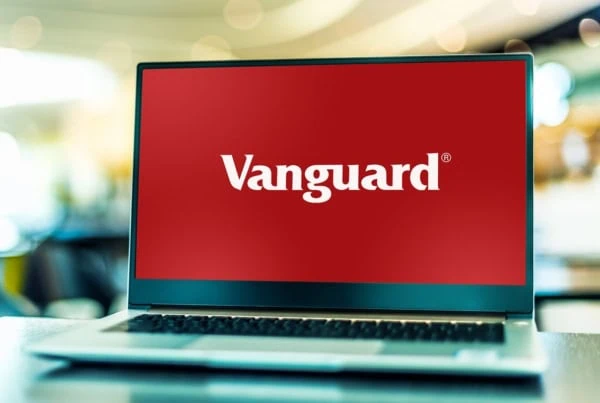There are many fantastic ways to invest money, and more new and different opportunities are becoming available every year. These investment opportunities range from the stock market to real-estate to cryptocurrency.
While these popular and well-known investments are great pursuits, you might also have investment opportunities in your backyard. Small businesses are the backbone of our economy, but it can be challenging to get one off the ground or grow it.
Small business owners often rely on local investors to gain the capital they need to grow. Not only can investors help small business owners pursue their dreams, but they can also use small business investments as a way to grow and diversify their portfolios.
If you haven’t yet considered investing in a small business, read on to learn how to get started and the key factors to consider when choosing which company to invest in.
What is Small Business Investing?
Small business investing provides funds to a business by buying into or lending to an existing business. You could also invest in a small business by launching and operating your own.
The returns you receive will depend on the kind of investment you make but can either be seen in a percentage of profits from business revenue or in interest and principal payback on loans.
What Types of Investments Can You Make in Local Businesses?
There are two ways to invest in an existing company. You can either provide funds in exchange for equity or lend money to the business.
Equity Investment
An equity investment is buying an ownership stake in the company. In this case, capital is given to the business in exchange for a percentage of the profits and possibly control over the business.
The capital is reinvested into the business in most cases to expand its operations and generate more revenue.
Debt Investment
On the other hand, a debt investment is a loan given to a company in exchange for repayment of the principal balance plus interest.
No ownership is granted with debt investments, and you’re lending money with the agreement that it is repaid regardless of the profits or losses incurred by the business.
How to Start Investing in Small Businesses
1. Find Deals Worth Pursuing
The first step to investing in small businesses is finding a deal worth pursuing. There are a few ways you can go about finding an investment opportunity.
First, consider any entrepreneurs in your network of family and friends. It might be a good opportunity if anyone you know has a solid preexisting business or business plan.
Additionally, you can network with other investors, search for information about startups, and check publications for information about local companies.
Social media is also a great place to network and find potential business opportunities.
2. Perform Due Diligence On Market Opportunity and Business Strategy
Once you’ve found a potential business opportunity, you must perform due diligence to try and ensure as much as possible that the venture will be an asset to you.
First, look at the business plan and strategy and assess for yourself the potential risk. You’ll also want to look at the current state of the business, financial projections, market opportunity and industry, and anything else pertinent to the companies before offering financing.
You’re risking your own money, so you want to be as sure as you can about the ability of the business to grow and profit.
3. Understand How the Business is Funded
Another crucial factor to assess when evaluating a business venture is how it is currently funded and where the company stands in terms of debt, funds, and assets.
Many small business funding avenues are available, including Small Business Administration Loans (SBA Loans), debt and equity investments, venture capitalists, and angel investors. Funding could also be acquired through banks, credit unions, and even business credit cards.
Especially if you’re a potential equity investor, you’ll want to understand other funding options open to you, those the business has already utilized, and the status and results of that funding.
4. Meet with Small Business Owners to Solicit Interest
Once you’ve narrowed down some options, it’s important to meet with the business owners to solicit their interest in obtaining funding through individual investors.
Some business owners may not be ready or interested in individual investors. Still, for those that are, this meeting is an opportunity to ascertain business goals, financial goals, and the intended use of the funds.
5. Negotiate Terms
When you’ve found entrepreneurs interested in your financing, it’s time to negotiate terms. If you’re an equity investor, you’ll need to agree to a percentage of ownership, percentage of profits, and financing amount.
As a debt investor, you’ll need to decide on the loan amount and the repayment terms.
6. Close Deal
After an agreement is reached, it’s time to close the deal. You’ll need to sign agreements and provide the promised capital.
In return, you’ll receive compensation based on the terms of your contract, which may include stock, dividends, a percentage of ownership and profits, capital gains, or another form of payment.
7. Stay Involved
Even when the deal is done, and the returns from your funding begin rolling in, it’s a good idea to stay actively involved in the company. Things can change quickly with a business, and as an investor, it’s essential to keep the pulse of any companies you invest capital in.
How to Invest in a Portfolio of Small Businesses as a Passive Investor
While the process outlined above will be best-practice for most small business investments, there is a way for investors to help small businesses without much active involvement.
Imagine, if you will, a small town in the heart of America. The streets are lined with quaint shops and diners that offer home-cooked meals to locals and visitors alike.
When you walk down this main street, you can feel the sense of community that fills the air. People stop by each other’s businesses to chat about their day or lend a helping hand when needed; it feels like everyone is family here. And that’s because they are, whether you realize it or not.
It’s not just one small company that provides jobs for this town; rather, every store owner has created their own niche business, bringing joy and financial stability to those around them. Wouldn’t you want to support such a community and see it flourish?
Well, now you can through a small business investment crowdfunding service called Mainvest.
Opportunity: Invest in small businesses local to you or nationwide. Have an impact investing approach to place money into businesses that drive the majority of employment in America.
Risk: These are small businesses, some of which are in their infancy. They also have exposure to risks related to public policy, such as shelter-in-place orders enacted by many states and localities as a result of the pandemic.
If you’d like to invest in small businesses, Mainvest curates vetted small business opportunities in your local community or nationwide for you to invest, track and build a portfolio in passive income investments.
These business ventures act as income generating assets that offer returns between 10-25% per year through revenue-sharing notes, which act as financial agreements to share revenue with investors until reaching a certain return.
These payments happen in lieu of interest on a traditional loan.
Mainvest holds responsibility for protecting investors from businesses that don’t have a strong direction or investment rationale for retail investors. As such, the service only accepts 5% of businesses who sign up for the platform to raise capital to grow their businesses.
The platform vets these businesses to allow you to make informed investment decisions based on your own interests and investing strategy.
You can choose companies based on location, industry, and risk appetite by comparing terms and qualitative data for the 300+ investment opportunities that have launched on the small business investing platform since its founding.
Consider tapping into a new kind of investment with as little as $100 on Mainvest. Start small and see how the alternative asset class performs before making it a significant part of your portfolio.
- Mainvest is a small business investment platform allowing you to target returns of 10%-25% with as little as $100 to start.
- These passive income investments in vetted small businesses can provide your portfolio with exposure to an emerging asset class while supporting local communities.
- Invest in innovative, community-driven founders' businesses in your backyard and across the country.
- Invest in small businesses for as little as $100
- Invest in local businesses to have impact
- High target returns (10-25%)
- No fees
- Can't invest in digital-only businesses
- Illiquid (can't buy/sell in secondary market)
- Maximum investment size depends on your income or net worth
Related: 13 Best High-Yield Investments [Safe Options Right Now]
What Risks are There in Investing in a Small Business?
With rewards comes risk, and investing in a small business is no different. Here are the main dangers to providing financing to a small business.
You Can Lose Your Entire Investment
The most significant danger to investors providing capital to a small business is losing their investment. If you don’t do your due diligence or something catastrophic happens and the business fails, you could lose your money.
This risk is why it’s crucial to finance only those projects you’ve thoroughly vetted and not invest more capital than you can afford to lose.
Your Investment is Illiquid
Investments in a business aren’t like having cash in the bank or a common stock you can quickly sell. This form of investment is tied to the company, and you’ll be paid back in increments over the life of the loan or your time as a part-owner rather than as a lump sum.
Unless you sell your shares or the company is somehow able to pay back their loan quickly, it’s improbable that you’ll be able to access the total amount of your investment for years.
As a result, it’s vital that you invest only what you can afford to let sit for the life of the loan or partnership.
You May Face Key Person Risk
Every investment carries risk, but a small business investment carries more personal risk than most. If you start a business or buy into one, you now accept personal responsibility for the growth and direction of the company in addition to the financial risk.
Furthermore, if you’re investing in a family or friend’s business, you run the risk of the relationship souring if the business fails.
It’s essential to do your due diligence and carefully consider the potential outcomes, both positive and negative, of any business venture before investing. And for those looking to invest small with relatively low risk should consider crowdfunding with Mainvest.
If you’re looking to diversify your portfolio, consider putting your extra cash into a small business and help someone’s dream come true. If it works out, you’ll be better off than with your money sitting in savings accounts at a bank.
As they say, nothing ventured, nothing gained.
Other Top Investment Opportunities to Consider
Check out some of these other investment options for a complete listing of every FinTech-enabled investment opportunity popping up. They might represent some of the best assets to buy for your portfolio.
|
4.5
|
4.4
|
4.0
|
|
Commission-free trading. Robinhood Gold: Free 30-day trial, then $5/mo.
|
Most funds: 0.85% annual fee. Fundrise Innovation Fund: 1.85% annual fee.
|
Minimum investment: $1,000
|
Related:


![How to Invest in Small Businesses [Investment Opportunities] 1 how to invest in small businesses](https://youngandtheinvested.com/wp-content/uploads/how-to-invest-in-small-businesses.webp)
![How to Invest in Small Businesses [Investment Opportunities] 2 paycheck paystub income](https://youngandtheinvested.com/wp-content/uploads/paycheck-paystub-income.webp)
![How to Invest in Small Businesses [Investment Opportunities] 3 online financial investing app tablet](https://youngandtheinvested.com/wp-content/uploads/online-financial-investing-app-tablet.webp)
![How to Invest in Small Businesses [Investment Opportunities] 4 young woman office secretary notes work job](https://youngandtheinvested.com/wp-content/uploads/young-woman-office-secretary-notes-work-job.webp)
![How to Invest in Small Businesses [Investment Opportunities] 5 young woman smartphone thinking](https://youngandtheinvested.com/wp-content/uploads/young-woman-smartphone-thinking.webp)
![How to Invest in Small Businesses [Investment Opportunities] 6 office business team meeting collaboration](https://youngandtheinvested.com/wp-content/uploads/office-business-team-meeting-collaboration.webp)
![How to Invest in Small Businesses [Investment Opportunities] 7 contract loan document rental agreement](https://youngandtheinvested.com/wp-content/uploads/contract-loan-document-rental-agreement.webp)
![How to Invest in Small Businesses [Investment Opportunities] 8 business meeting agreement handshake deal](https://youngandtheinvested.com/wp-content/uploads/business-meeting-agreement-handshake-deal.webp)
![How to Invest in Small Businesses [Investment Opportunities] 9 man computer laptop thinking](https://youngandtheinvested.com/wp-content/uploads/man-computer-laptop-thinking.webp)
![How to Invest in Small Businesses [Investment Opportunities] 10 mainvest sign up 1](https://youngandtheinvested.com/wp-content/uploads/mainvest-sign-up-1.webp)
![How to Invest in Small Businesses [Investment Opportunities] 11 mainvest revenue sharing notes 1](https://youngandtheinvested.com/wp-content/uploads/mainvest-revenue-sharing-notes-1.webp)
![How to Invest in Small Businesses [Investment Opportunities] 12 Mainvest | Invest in Small Businesses](https://youngandtheinvested.com/wp-content/uploads/mainvest-logo-transparent-symbol.webp)
![How to Invest in Small Businesses [Investment Opportunities] 13 Robinhood | No-Commission Equity Trades, IRA Matches](https://youngandtheinvested.com/wp-content/uploads/robinhood-logo-transparent-black-symbol.webp)
![How to Invest in Small Businesses [Investment Opportunities] 14 Fundrise | Start Investing in Real Estate With Just $10](https://youngandtheinvested.com/wp-content/uploads/fundrise-logo-transparent.webp)
![How to Invest in Small Businesses [Investment Opportunities] 15 Masterworks | Invest in Blue Chip Art](https://youngandtheinvested.com/wp-content/uploads/masterworks-logo.webp)



